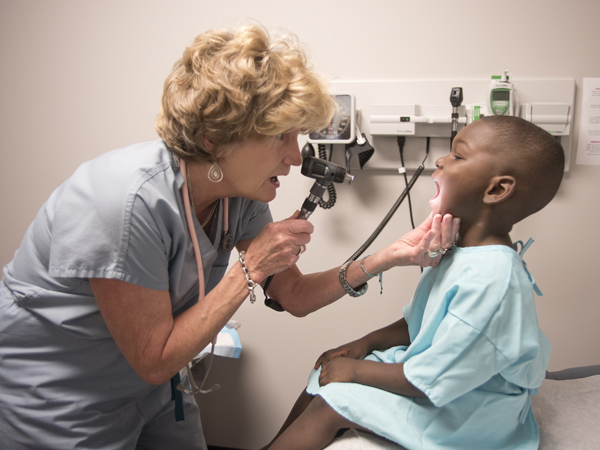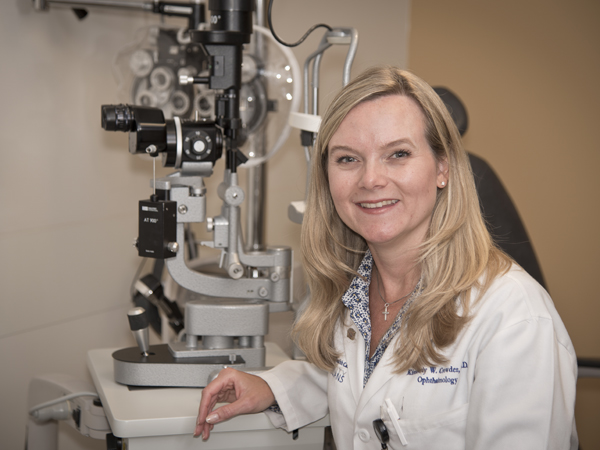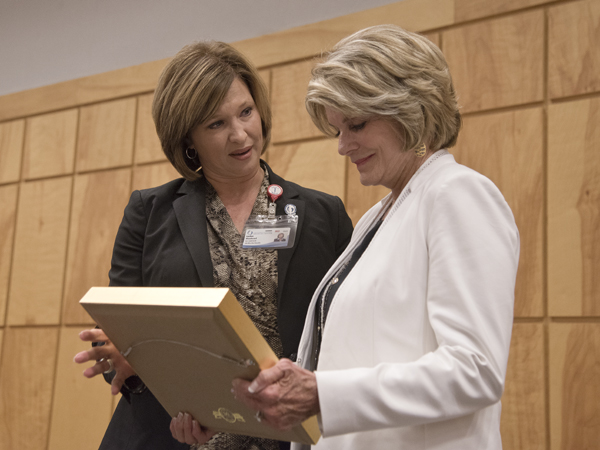|
Suzan B. Thames, whose name is synonymous with raising funds and nurturing Mississippi's children, was celebrated Wednesday at the Medical Center in a clandestine operation. The homage was kept secret from Thames until she walked into the annual meeting of the Friends of Children's Hospital and some 60 voices yelled, "Surprise!" Thames, the original president and chair of Friends, which promotes and raises funds for Batson Children's Hospital, proceeded to collect accolades and a memento as the namesake of the endowed chair now held by Dr. Rick Barr. She received a shadow box-framed medal bearing the inscription, "The Suzan Brown Thames Chair of Pediatrics," which was fully endowed in 2010; the medal is a replica of the one awarded to Barr when he was named chair in 2011. "When you see this I want you to remember how much we appreciate you," said Dr. LouAnn Woodward, vice chancellor for health affairs and dean of the School of Medicine, as she presented the medal to Thames. "I want you to think about the friends you have raised and the millions of dollars you have raised. But most importantly, think of all the children and the children's families who are better off because of what you have done. "You are one of our heroes."
|


























